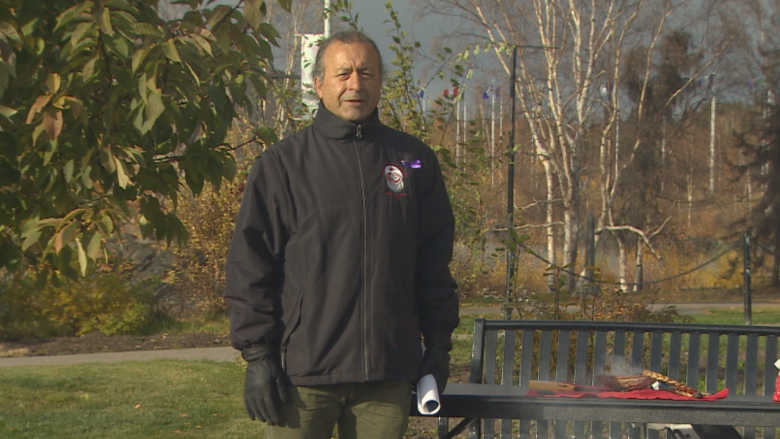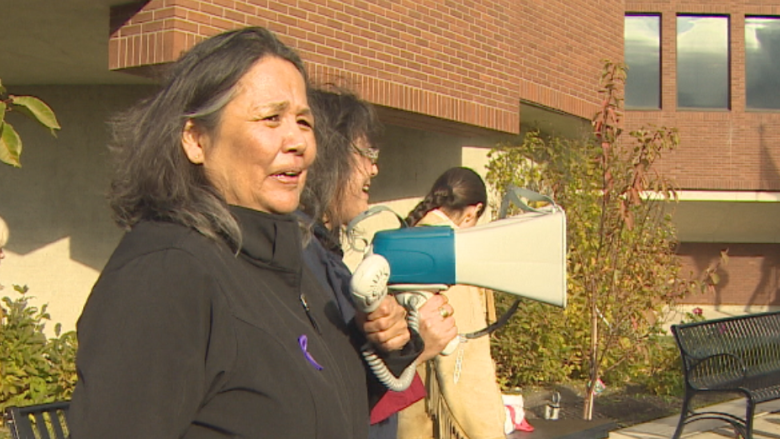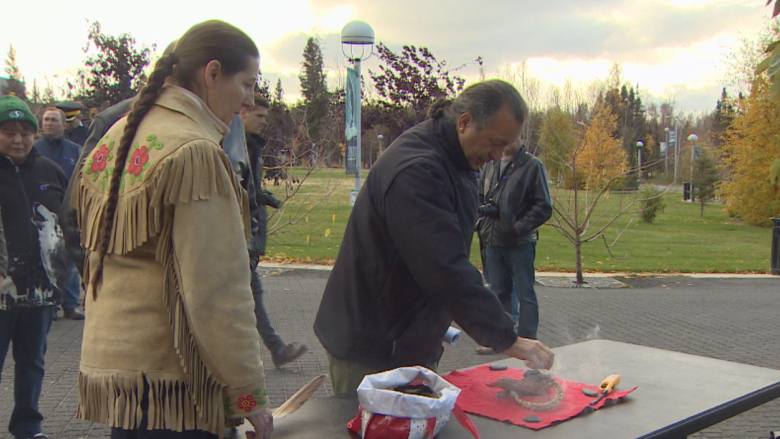Bill Erasmus accused of victim blaming at MMIW rally in Yellowknife
The Chief of the Dene Nation is being criticized for comments at a recent rally in Yellowknife, where he suggested better parenting and women not being alone on the street could prevent violence.
The Sisters in Spirit march honours the lives of missing and murdered aboriginal women, but some women found Bill Erasmus's words anything but comforting.
"He began his conversation by looking at the women and saying, 'You are probably not going to like what I have to say,'" says Sandra Lockhart, who emceed the rally in Somba K'e park on Friday.
The event was attended by several officials, including the premier, Yellowknife's mayor, and the vice-president of the Native Women's Association of the N.W.T.
Erasmus began by referring to Rinelle Harper, the young woman from Winnipeg who survived a brutal sexual assault last November, and asked, "What was she doing out by herself?"
He went on to talk about flying to different communities, seeing young aboriginal people out late, and how better parenting and women not being alone on the street would prevent violence against them.
Lockhart says she was offended that Erasmus would minimize systemic racism and violence that has a long history in Canada.
"I was very, very disappointed in his speech," she says, "to only focus on our parenting. It felt like a revictimization.
"That it's just — you know — all of the women who are dying are dying because they are high risk women and high risk children? You know we're not safe anywhere," Lockhart says.
Erasmus, who's also the Assembly of First Nations regional chief for the N.W.T., says his words are being taken out of context.
"I think they thought I was saying that women don't have a right to be on the street.
"That's not what I was saying," Erasmus says. "They have a right to be on the street, but if the street is not safe, they have to protect themselves."
Erasmus says the Dene Nation supports a national inquiry into missing and murdered women, and supports adequate resources for police departments so more can be done to investigate cases.
But, he says, "we all have to be responsible in protecting one another."
"To a large degree, we've lost the ability to take care of ourselves. And that's why we're getting into this problem situation. Some people don't want to hear that. And some people are very sensitive to this.
"If two women are together late at night, there are less chances of something happening to them. It's that simple. That's the point I'm making."
Lockhart says if Erasmus really wants to deal with the issue of murdered and missing aboriginal women, he should take the lead in developing a national action plan.




